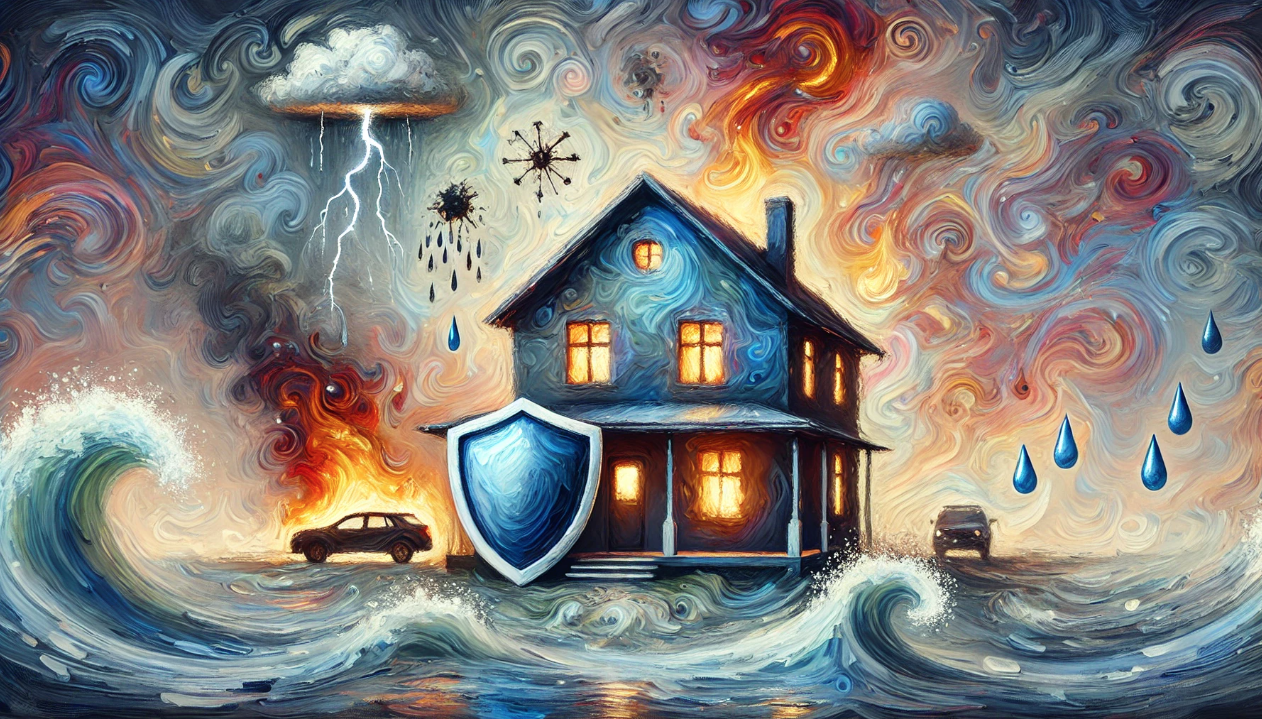As a homeowner, did you know that your insurance policy might cover a wide range of unexpected property damage? For homeowners in Florida, damage is often weather-related, with threats from thunderstorms, hail, hurricanes, and more. However, property damage doesn’t always have to be severe to be covered—smaller incidents involving roofs, walls, flooring, and structures may also qualify.
Let’s dive into 8 types of property damage that your homeowners insurance policy might cover. It’s important to consult an experienced first claims attorney to fully understand your policy and maximize your claim options.
What Perils Are Typically Covered by Homeowners Insurance?
Homeowners insurance policies list covered risks, known as “perils,” which can include fire, water, wind, and other hazards. Here are some common types of property damage that may be covered under standard policies according to the Insurance Information Institute:
- Hurricane and Wind Damage
Florida is no stranger to hurricanes, and many homeowners insurance policies cover damage from hurricanes, strong winds, and storms. However, coverage limits vary widely. Check your policy carefully to understand any specific wind damage exclusions or deductibles. - Plumbing Mishaps and Water Overflow
Plumbing issues can cause extensive water damage, whether from a burst pipe or an overflowing bathtub. If a sudden plumbing incident leads to flooding, your policy may cover the repairs. Tip: Review your policy for details on water damage coverage, as conditions vary. - Fire Damage
If a fire damages or destroys parts of your home, your insurance policy will likely cover repair or rebuilding costs. This includes not only structural repairs but also the replacement of furniture and personal items. Fire damage protection is a common inclusion in standard policies. - Lightning Strikes
Lightning strikes are more frequent than many realize, and the damage can range from minor cosmetic issues to serious structural problems. A home inspection can help assess any hidden damage from lightning. Check your policy to ensure it includes lightning damage coverage. - Vandalism and Malicious Mischief
If your property is damaged due to vandalism, such as broken windows, graffiti, or even damage from riots, you may be covered. In certain cases, you may also hold perpetrators financially liable, which can enhance your settlement. Contact a property damage attorney to explore your options. - Falling Objects
Whether it’s a fallen ceiling fan, a light fixture, or an object from outside, damage from falling items is sometimes covered under homeowners insurance policies. If structural damage leads to such incidents, your policy may help cover repairs. - Water Damage from Non-Weather Sources
Water damage isn’t always storm-related. Events such as a leaking washing machine or dishwasher, or an overflow from a sink, may be covered under certain policies. Check your policy’s fine print to understand what types of water damage are eligible. - Smoke Damage
Smoke damage doesn’t always result from a full-blown fire. Even a small kitchen mishap or an electrical issue can lead to lingering smoke damage. If your home suffers smoke-related damage, your policy may cover cleaning or replacement costs.
Preparing to File a Claim
When property damage occurs, being prepared can make a difference. Here are a few steps to help you get started:
- Document the Damage: Take photos and videos of the affected areas as soon as possible.
- Review Your Policy: Make sure you understand your coverage and any specific exclusions.
- Contact a First Claims Attorney: An attorney can provide expert guidance on maximizing your claim.
- Notify Your Insurance Provider: File your claim promptly to avoid delays in processing.
Homeownership is a major investment, and protecting that investment through homeowners insurance can provide peace of mind. If your property sustains damage that requires significant repairs or replacements, you may be able to seek compensation through your insurance provider. Give us a call to learn more about how we can help you navigate the claims process and protect your rights.


